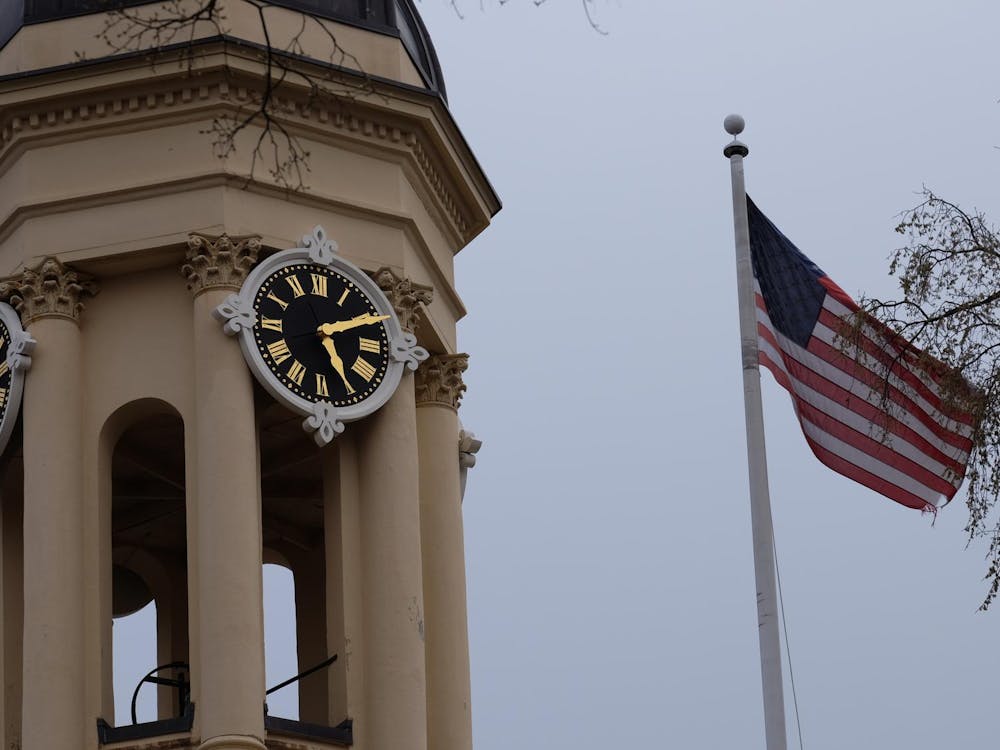The city is Montreal, and the place is the Oratoire Saint-Joseph du Mont-Royal, a majestic basilica complex perched on a hill in the center of the French Canadian city. The church is the largest in Canada, and its green dome of aged copper is either the second- or third-largest of its kind in the world, depending on the source. Though Montreal's Basilique Notre-Dame is certainly the most opulent place of worship I have seen, the votive chapel's pure, devotional spirituality transcends aesthetics, approaching some purer beauty.
The miracles that occurred here are credited to a man known as Brother Andre who was later beatified by Pope John Paul II. He attributed his works to Saint Paul, for whom he named the chapel he founded more than a century ago where the Oratoire stands today.
Now, some may be vexed by my confident assertion that healing miracles were, in fact, performed by this man. How can this intelligent Princetonian give way to such naked superstition? I am by nature a skeptical person who viewed miracles with more curiosity than devotion. But looking at those abandoned crutches, silently interacting with other prayerful guests and sensing the spirituality of the place left the unmistakable impression, perhaps even more salient on reflection, that at that moment, something special happened here. Furthermore, the Catholic Church has taken the not-at-all trivial step of confirming the authenticity of the miracles of Saint Joseph through Brother Andre. And so I choose to believe.
The holiness of the place prompted me to make my first expenditure in memory on a religious object other than a Bible for a class. A rosary with deep royal blue beads and gold-colored chain caught my eye, and it made the trip to Princeton with me. I now keep it in my pocket during the day, even though I need a refresher course about how to actually use it for prayer; there is something tranquil about rubbing the smooth beads between my fingers in the middle of a stressful day. It reminds me of something more important, more powerful. It takes only a moment of reflection on the suffering depicted on the cross to place daily life into a cosmic context; the trials and temptations with which we continually struggle are petty in comparison.
Places like the Oratoire Saint-Joseph serve to enrich that context in which I think, speak and act. The pure faith present in that votive chapel was palpable, and the spirituality of the surroundings and the prayerfulness of fellow visitors cannot but bring one closer to God. The crutches on the wall are a humbling testament to a greater power and a stronger will, reminding us all that no matter how important, intelligent and powerful we might feel, we are subject to and dependent on something infinitely grander.
My strongest memory from the Oratoire is of a mother and her children, one of whom was confined to a wheelchair. They entered the chamber of the tomb of Brother Andre, where my family and I were situated. The entire family, including the sick son, pressed against the enormous ebony tomb, nearly caressing it, supplicating for an intercession. I could feel tears coming to my eyes from two separate emotions. I was profoundly moved by the remarkable faith of the family, which I could only hope to emulate. But I was also filled with an immense sadness, for through either nagging skepticism or simple unbelief, I could not help but feel their efforts would be futile. Standing in the shadows, though, intending just to observe, I almost unconsciously began silently, furiously praying for them.
I did not expect the young man to walk out of the votive chapel. And he didn't. But I firmly believe that, in some way, whether through actual physical healing, through peacefulness of mind and spirit, or, most profoundly, in the next world, their extraordinary humility and faith will be rewarded.
Of course, all this begs the understandable question: Why am I writing about this? I was actually prepared to write on some eminently intellectual topic with regard to the ideas of risk and freedom, how the two go hand in hand, etc. But holding the chain and looking at the crucifix dangling from it, it became clear that this was the most important topic on which I could write this first column of my junior year. It is a story not often told on college campuses or in newspapers, but it is important precisely because it is different. It asks us all to contemplate those things that are greater than ourselves and to live with the humility of knowing that our experience is not the pinnacle of existence.

Brandon McGinley is a politics major from Pittsburgh, Pa. He can be reached at bmcginle@princeton.edu.
Want to be a ‘Prince' columnist? E-mail opinion@dailyprincetonian.com by Sept. 25 for details or an application.








